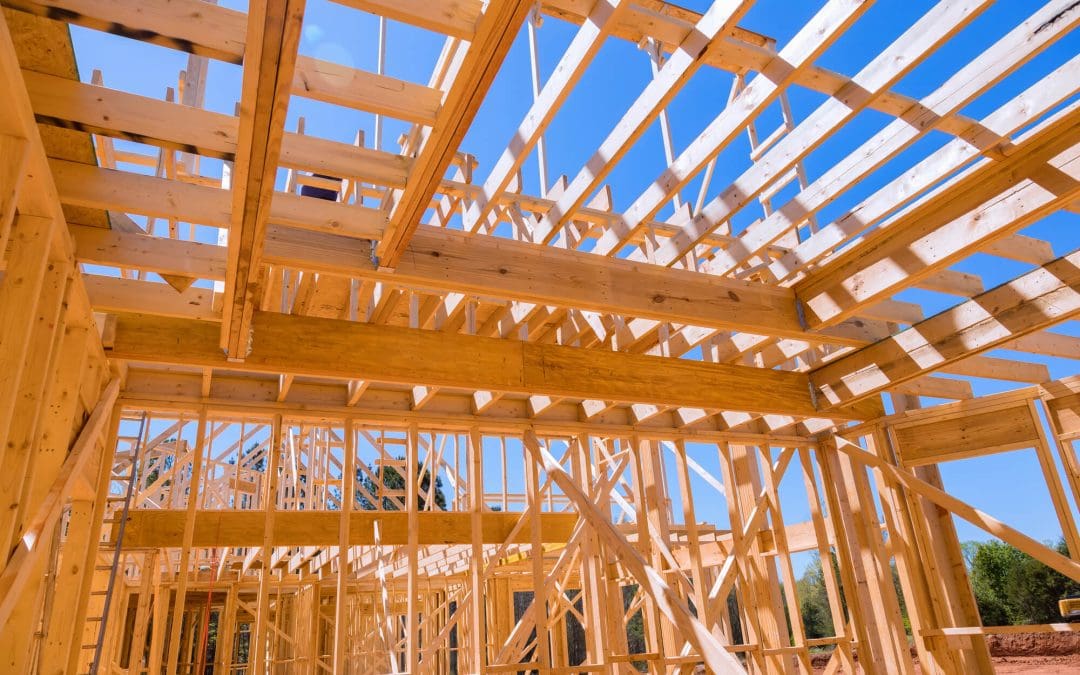Building a new home is an exciting milestone, but even brand-new houses can come with a few unexpected issues. Small issues early on will become big problems over time. Here are some of the most common new construction defects and what you can do if you run into them.
Foundation and Structural New Construction Defects
The foundation is the most important part of your home. If it isn’t built correctly, you might notice cracks in your walls or floors that aren’t level. Sometimes the soil under your home isn’t compacted properly, or water drainage isn’t set up as it should be. These issues can lead to uneven settling or even cracks around doorways and windows. If you spot anything unusual, it’s a good idea to have a professional take a look. Fixing a foundation problem early can save you from more serious repairs later.
Roofing and Water Leaks
A well-built roof is key to keeping your home dry and safe. However, even new roofs can have problems. Sometimes, the shingles might not be placed correctly, or the waterproofing around chimneys and vents might be off. This can lead to leaks, which might appear as water stains on your ceilings or walls. After a heavy rain or storm, it’s smart to check the roof for any signs of damage. A quick fix can prevent water from causing bigger problems like mold or rotting wood inside your home.
Plumbing and Electrical New Construction Defects
Plumbing and electrical systems in new homes should be modern and safe, but mistakes happen. You might encounter issues like low water pressure, leaky pipes, or even outlets that don’t work correctly. In some cases, pipes might be installed too close together, or the wiring might not meet local codes. While these issues may seem minor, they can quickly become a safety hazard if left unaddressed. Testing your plumbing and electrical systems soon after moving in is a smart move. If something doesn’t feel right—like a buzzing sound from a breaker or an oddly low water pressure—get a professional opinion.
Insulation and Ventilation Shortcomings
Good insulation and proper ventilation are essential for keeping your home comfortable and energy-efficient. In new homes, sometimes the insulation is insufficient or missing in some areas. This can lead to hot and cold spots in your home, making your energy bills higher than they need to be. Ventilation issues can also cause moisture to build up, which may lead to mold or mildew over time. Check your windows and doors to make sure they seal properly. If you notice drafts or uneven temperatures, consider having an energy audit done by a professional. This small step can help you save money and improve your indoor air quality in the long run.
What You Can Do About These Defects
If you suspect any problems in your new home, the first thing to do is to document what you see. Take photos and note when and where you noticed the issue. Then, reach out to a trusted professional—whether that’s a home inspector, a contractor, or your builder. Most new homes come with a warranty that covers certain defects, so it’s important to check your warranty documents. Acting early is key because a small defect today can become a major repair job tomorrow.
Staying on top of regular maintenance is another way to keep your home in great shape. A periodic check-up by a professional can catch issues before they become bigger problems. Don’t worry if you find something unexpected; the goal is to fix it before it causes more damage or leads to higher repair costs.
By keeping an eye out for these common defects and addressing them early, you’ll be better prepared to enjoy your new home without any unwelcome surprises. Remember, knowledge is power, and being proactive can save you a lot of stress and money in the long run.
Frequently Asked Questions
What are some of the most common defects in new construction homes?
Even new homes can have issues like foundation cracks, roofing leaks, plumbing and electrical problems, and poor insulation or ventilation. These are often due to rushed construction or small mistakes during building.
How can I tell if there’s a problem with my home’s foundation?
Look for signs like cracks in the walls or floors, sticking doors and windows, or uneven floors. If you notice these signs, it’s a good idea to have a professional inspect your foundation as soon as possible.
What should I do if I find a leak in my new roof?
If you see water stains or notice damp spots on your ceiling, check your roof for missing or damaged shingles and ask a roofing expert to inspect it. Addressing roof leaks quickly can prevent more serious water damage inside your home.
Can these defects be fixed under warranty?
Most new homes come with a warranty that covers various defects for a specific period. It’s important to read your warranty carefully and report any issues as soon as you notice them so that you can take advantage of the coverage provided.
AAA Professional Home Inspectors provides inspection services, including new construction inspections in Kentucky and Southern Indiana. Contact us to request an appointment.

